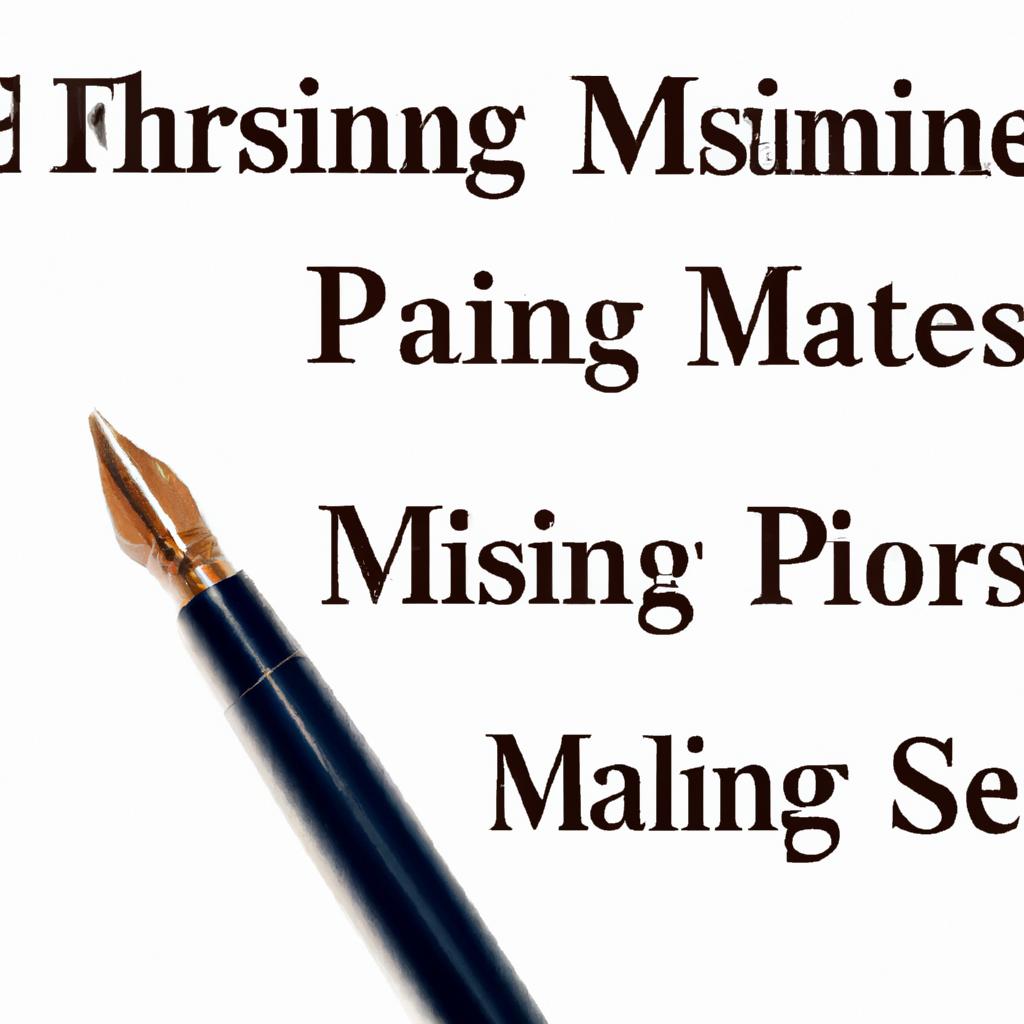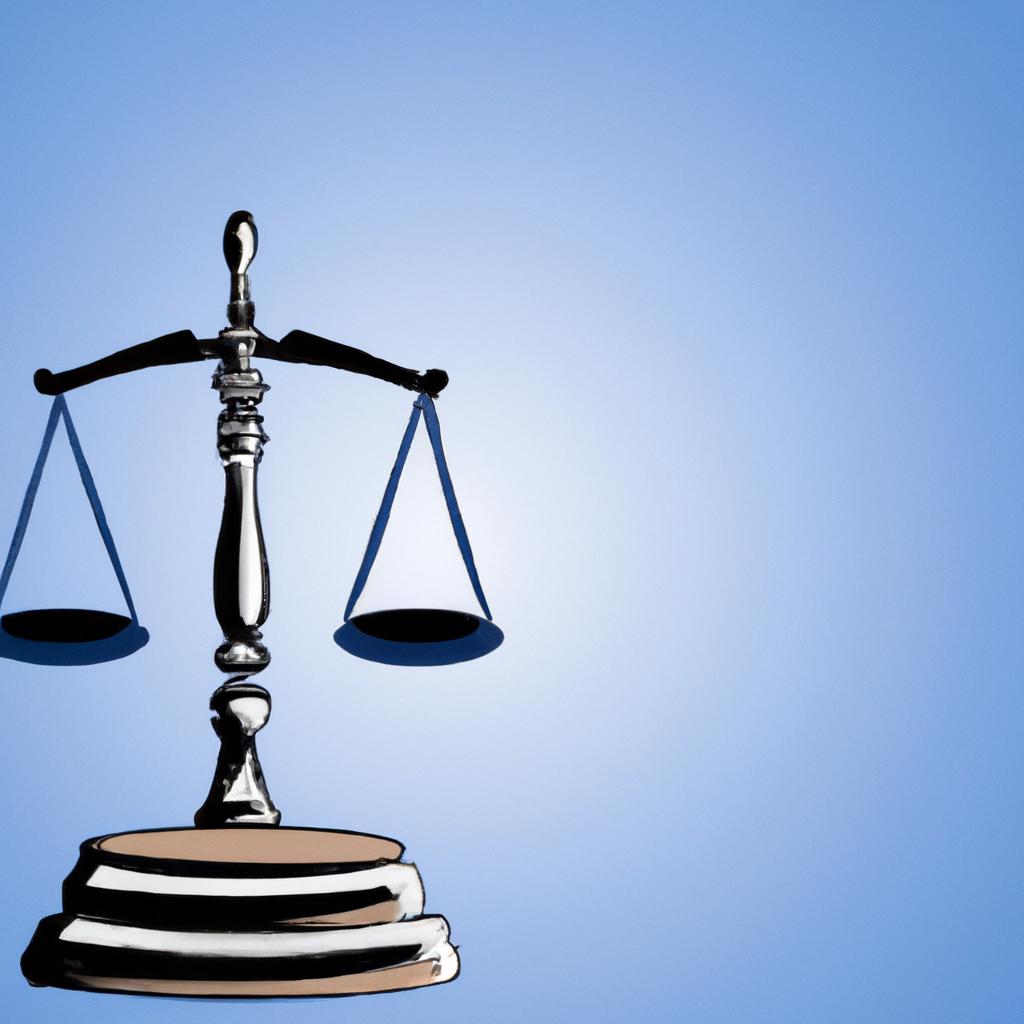In the intricate realm of estate planning, the distinction between a will and a trust is often muddled and misunderstood. As seasoned practitioners in the field of law, we at Morgan Legal Group understand the importance of clarity when it comes to drafting these vital documents. In this article, we aim to shed light on the nuanced disparities between a will and a trust, guiding you through the complex decision-making process with precision and expertise. Join us as we unravel the intricacies of these fundamental components of estate planning, offering insights that will empower you to make informed choices for the future.
Key Differences Between a Will and a Trust
When it comes to estate planning, understanding the is essential for making informed decisions about how to distribute your assets. While both documents are vital components of an estate plan, they serve different purposes and offer unique advantages.
One of the main differences between a will and a trust is how they go into effect. A will only becomes effective upon your death, while a trust can take effect immediately or at a later date, depending on your wishes. Additionally, a will is a public document that goes through the probate process, which can be time-consuming and costly. On the other hand, a trust allows for the transfer of assets outside of probate, providing more privacy and potentially faster distribution to beneficiaries. Overall, while a will is essential for naming guardians for minor children and outlining your wishes, a trust can offer more flexibility and control over how your assets are managed and distributed.

Understanding the Legal Implications of Each Document
When it comes to estate planning, it’s essential to understand the legal implications of each document, especially when considering a will versus a trust. While both serve as tools for distributing assets upon death, they have distinct differences that can impact how your assets are managed.
A will is a legal document that outlines how your assets will be distributed after your death. It allows you to designate beneficiaries for specific assets and appoint an executor to oversee the distribution process. On the other hand, a trust is a legal entity that holds assets for the benefit of one or more beneficiaries. With a trust, assets are transferred to the trust during your lifetime, allowing for privacy and potentially avoiding probate. Additionally, a trust can provide flexibility in how assets are managed and distributed, such as through specific conditions or over time.

Determining Which Estate Planning Tool Best Fits Your Needs
When it comes to , it is essential to understand the key differences between a will and a trust. While both serve as valuable tools for passing on assets to loved ones, they each have distinct advantages and limitations.
One key difference between a will and a trust is how they are administered. A will goes through the probate process, which can be time-consuming and costly. On the other hand, a trust allows for assets to bypass probate and pass directly to beneficiaries, saving time and money. Additionally, a trust offers greater privacy as it does not become a matter of public record like a will does. Ultimately, the decision between a will and a trust will depend on your individual circumstances and goals.

Recommendations for Crafting a Comprehensive Estate Plan
When crafting a comprehensive estate plan, it is crucial to understand the key differences between a will and a trust. While both serve as important estate planning tools, they each have their own unique benefits and considerations.
Will:
- A will is a legal document that outlines how your assets will be distributed upon your death.
- It allows you to designate beneficiaries for specific assets, name guardians for minor children, and appoint an executor to carry out your wishes.
- One key advantage of a will is that it allows for flexibility and can be easily updated as your circumstances change.
Trust:
- A trust is a legal entity that holds assets for the benefit of designated beneficiaries.
- It can help avoid probate, provide privacy, and offer greater control over how and when assets are distributed.
- There are different types of trusts, such as revocable and irrevocable trusts, each with its own specific uses and benefits.
Q&A
Q: What is the main difference between a will and a trust?
A: A will is a legal document that outlines how a person’s assets and possessions should be distributed after their death, while a trust is a legal arrangement in which one person or entity holds and manages assets on behalf of another person.
Q: Are wills and trusts used for the same purpose?
A: While both wills and trusts are estate planning tools, they serve different purposes. A will is primarily used to distribute assets after death, while a trust can be used for a variety of purposes, such as managing assets during a person’s lifetime and avoiding probate.
Q: Which is more commonly used, a will or a trust?
A: Wills are more commonly used than trusts, as they are a simpler and more affordable option for most individuals. However, trusts can offer additional benefits, such as privacy and asset protection, that may make them a better option for some people.
Q: Can a will and a trust be used together?
A: Yes, a will and a trust can be used together as part of a comprehensive estate plan. For example, a person may use a will to outline their wishes for how their assets should be distributed and a trust to manage specific assets or provide for beneficiaries with special needs.
Q: Do wills and trusts have the same legal requirements?
A: Wills and trusts have different legal requirements, with wills typically requiring witnesses and notarization to be valid, while trusts do not require these formalities. It is important to consult with an attorney to ensure that your will or trust meets all legal requirements.
In Conclusion
In conclusion, understanding the difference between a will and a trust is crucial in order to effectively plan for the distribution of your assets after you pass away. While both serve similar purposes, they each have their own unique advantages and considerations. By consulting with a legal professional or estate planner, you can make informed decisions that will provide peace of mind for yourself and your loved ones. Remember, every individual’s situation is different, so it’s important to carefully consider your own needs and circumstances when deciding whether to create a will, a trust, or both. Ultimately, the key is to create a plan that reflects your wishes and protects your legacy for generations to come.

